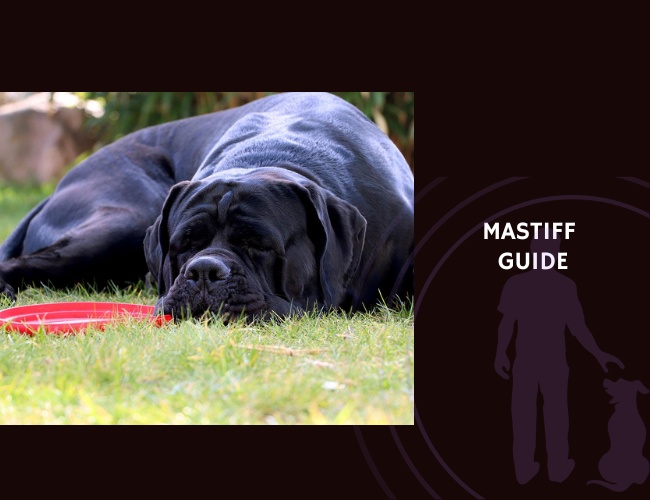Quick Facts about the Mastiff
- Origin: United Kingdom
- Weight: 68–110 kg (male), 54–91 kg (female)
- Life expectancy: 6–10 years
- Coat Colour: Fawn, apricot, or brindle with a black mask
- Breed Group: Working / Giant Breed
The Mastiff is a colossal guardian breed, renowned for its calm demeanour, massive size, and deep loyalty. With ancient roots and a protective nature, the Mastiff is a gentle giant when properly socialised and trained.
Mastiff History
The Mastiff’s ancestry dates back thousands of years to ancient civilizations such as Babylon, Egypt, and Rome, where they were used in war, hunting, and as estate guardians. The modern English Mastiff evolved in Britain as a protector of property and family.
These dogs were valued for their imposing size and courage, but also for their stable and affectionate temperament with those they knew. Despite their intimidating presence, they are known as devoted and mellow companions.

Mastiff Temperament
The Mastiff is deeply affectionate, devoted, and protective of its home and family. Though naturally reserved with strangers, it is not aggressive without cause and usually assesses situations calmly.
Mastiffs are quiet by nature and not prone to barking. Their gentle temperament makes them excellent family dogs, but their sheer size and strength require early training and clear boundaries.
Note: This breed matures slowly and can be emotionally sensitive. Harsh correction can damage trust—gentle firmness is key.
Health and wellness
Mastiffs require moderate, low-impact exercise to prevent obesity and maintain joint health—especially during growth phases. Overexertion in young Mastiffs can damage developing joints.
They are prone to overheating due to their bulk, and care must be taken in hot climates. A high-quality diet tailored to large-breed needs is essential, especially to prevent rapid growth and joint stress.
Significant problems:
Hip and elbow dysplasia
Gastric torsion (bloat)
Heart conditions (e.g. cardiomyopathy)
Entropion (inward-turning eyelids)
Obesity-related issues
Life expectancy: 6–10 years

The Complete Guide to Mastiff
🔍 Looking to go deeper into dog training?
Use these categories to explore targeted guides and articles on canine behavior, nutrition, obedience, entertainment, and more.









